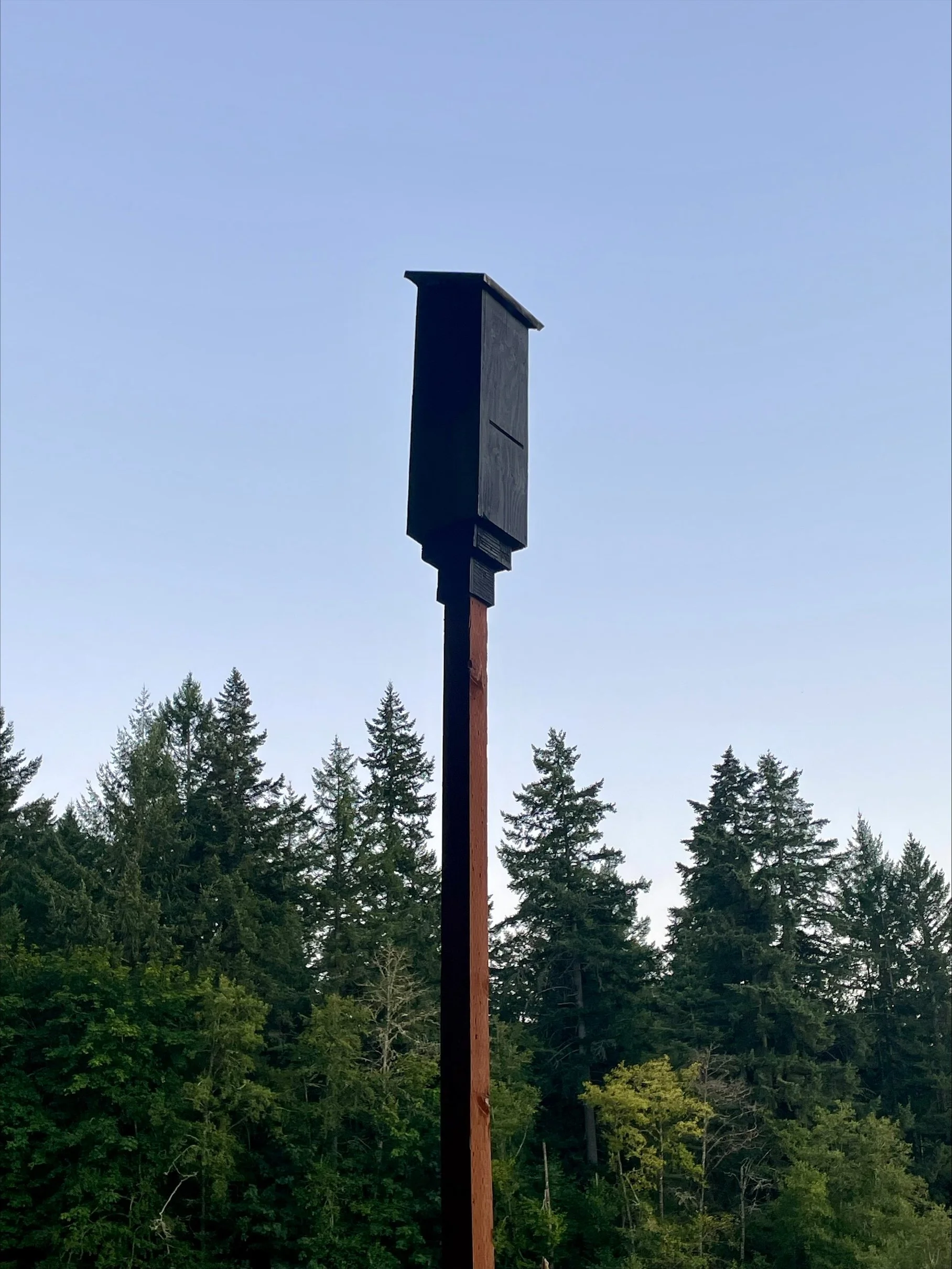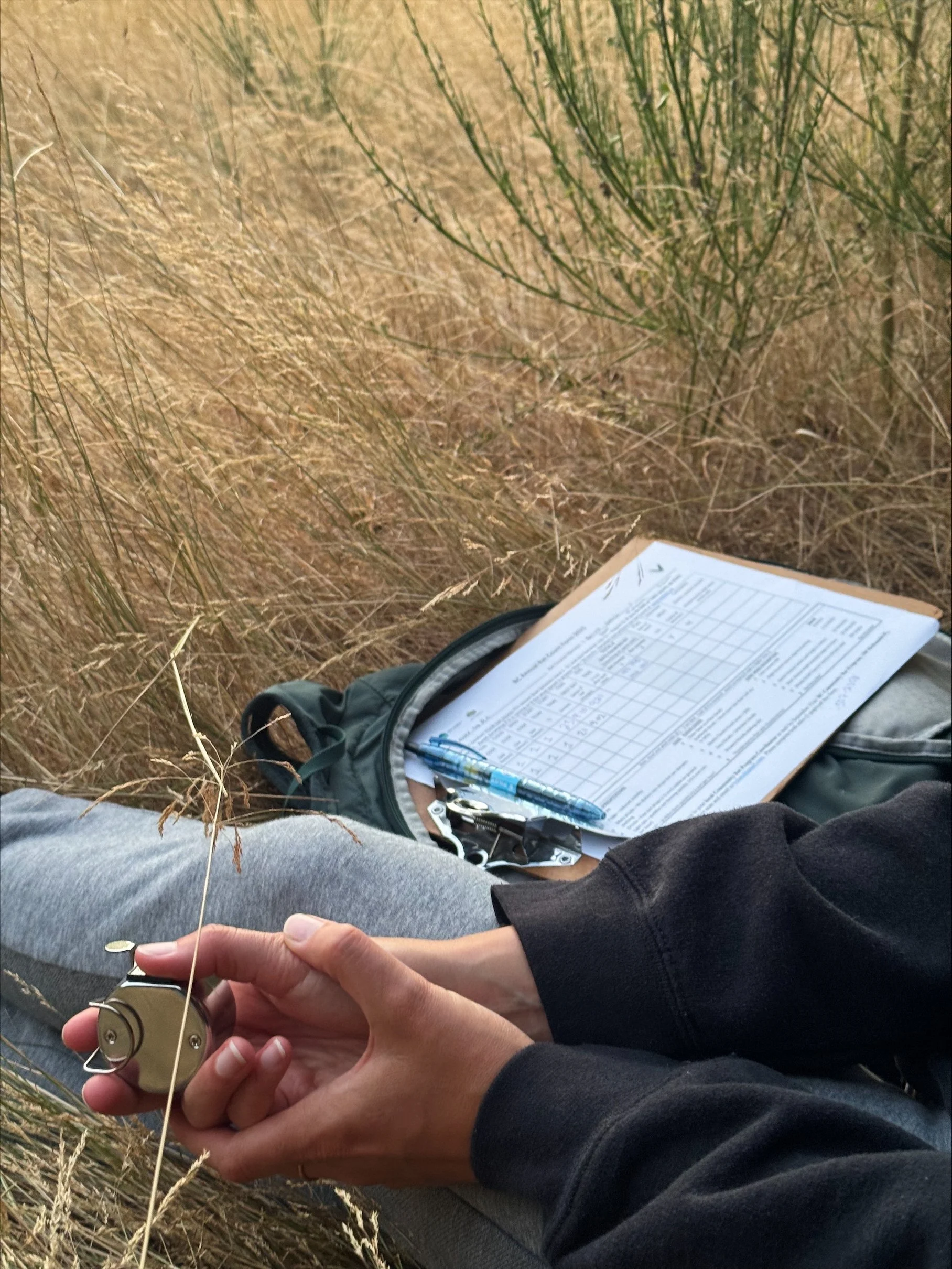Bat Count Wrap Up 2025
We want to extend our gratitude to all the volunteers who participated in this year’s BC Annual Bat Count!
From June to August, volunteers spent their evenings patiently watching the sky at dusk, counting the number of bats emerging from their roost sites across the CRD. These counts provide valuable data on bat population numbers across BC, helping biologists understand bat ecology and monitor changes over time. Roosts in houses, barns, church steeples, and bat boxes are monitored as they provide a summer home to female bats and their young.
Bats are a critical part of our ecology and economy, consuming large amounts of insects, including mosquitoes and agricultural and forest pests. Of the 16 species of bats in BC, over half of them are considered “at risk”, including the federally endangered little brown myotis, and the blue-listed Townsend’s big-eared bat, hoary bat, and yuma myotis. Bats in BC are suffering from significant habitat loss, including the loss of critical foraging areas like wetlands and roost sites in wildlife trees. Another major threat to bat species is white-nose syndrome, a fungal disease that affects bats during hibernation. This causes bats to wake up and use their valuable energy stores to groom the fungus from their bodies. The depletion of energy is often fatal. Other threats include insecticide use, climate change, predation by cats, and wind turbines. These challenges make it vital to monitor bat populations each year.
Pictured: Diana, Jen, Chris, Heather, and Evan have been faithfully counting bats at two roosts for six years running - thank you for your dedication to bat conservation!
The Annual Bat Count relies on volunteer community scientists. In 2025, more than 60 volunteers participated in this program, monitoring 14 roost sites, recording over 8000 bats as they emerged from their summer roosts to forage for insects. The largest colony counted in one night had 794 bats!
Special thanks to our team leads, many of whom have been dedicated team leads for multiple years! June Pretzer, Larissa Bron, Natalie McNeely, Heather Siddon, Beverly Hill, Janet Gray, Jenny DeYaeger, John Potter, Ben van Drimmelen, and Sydney Dixon.
Check out the 2024 BC Annual Bat Count report and summary.
The bat counts are a fun way to get involved with local wildlife and your community! If you are interested in joining the next Annual Bat Count, please email Julianna at bat@hat.bc.ca





